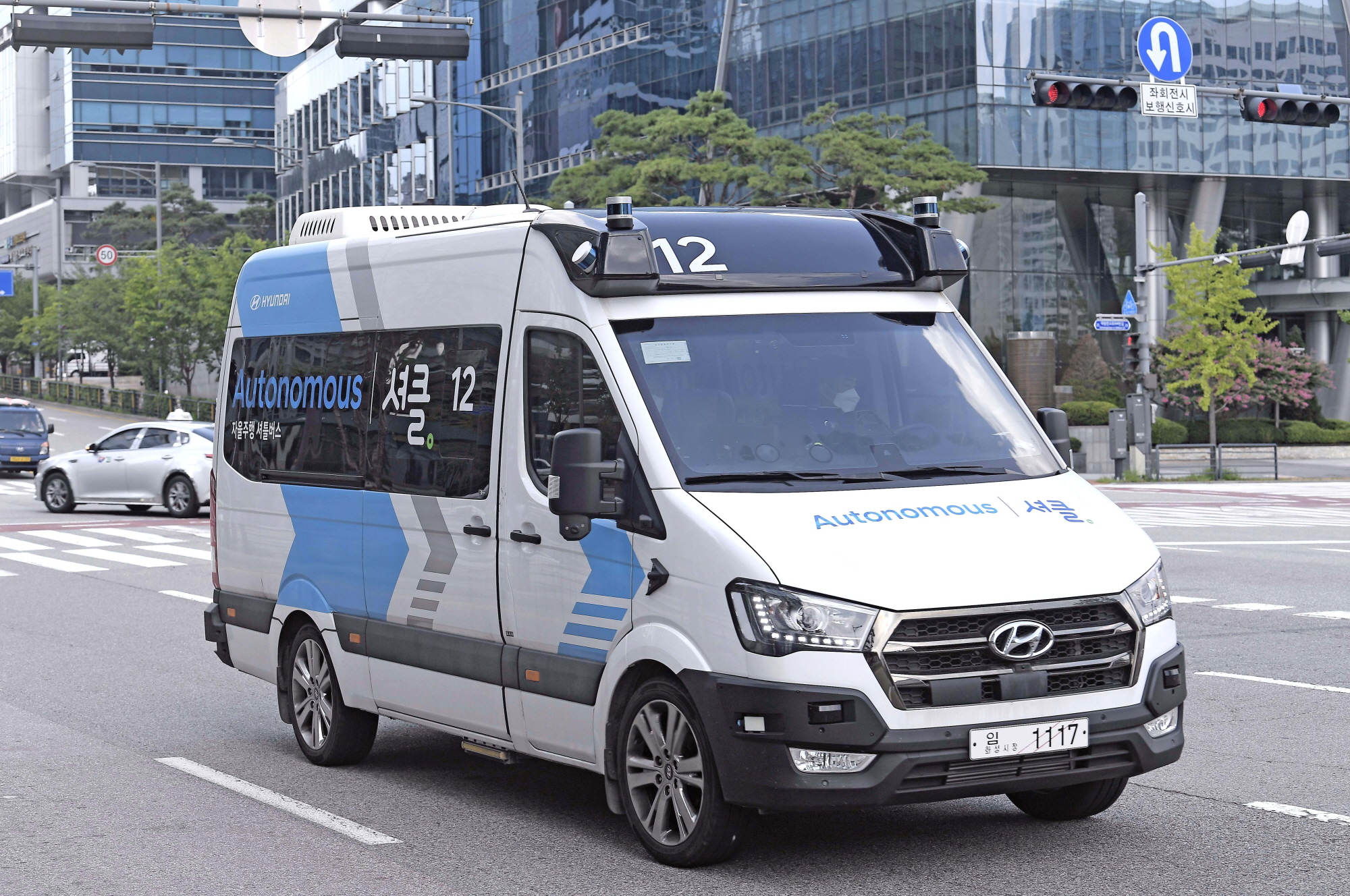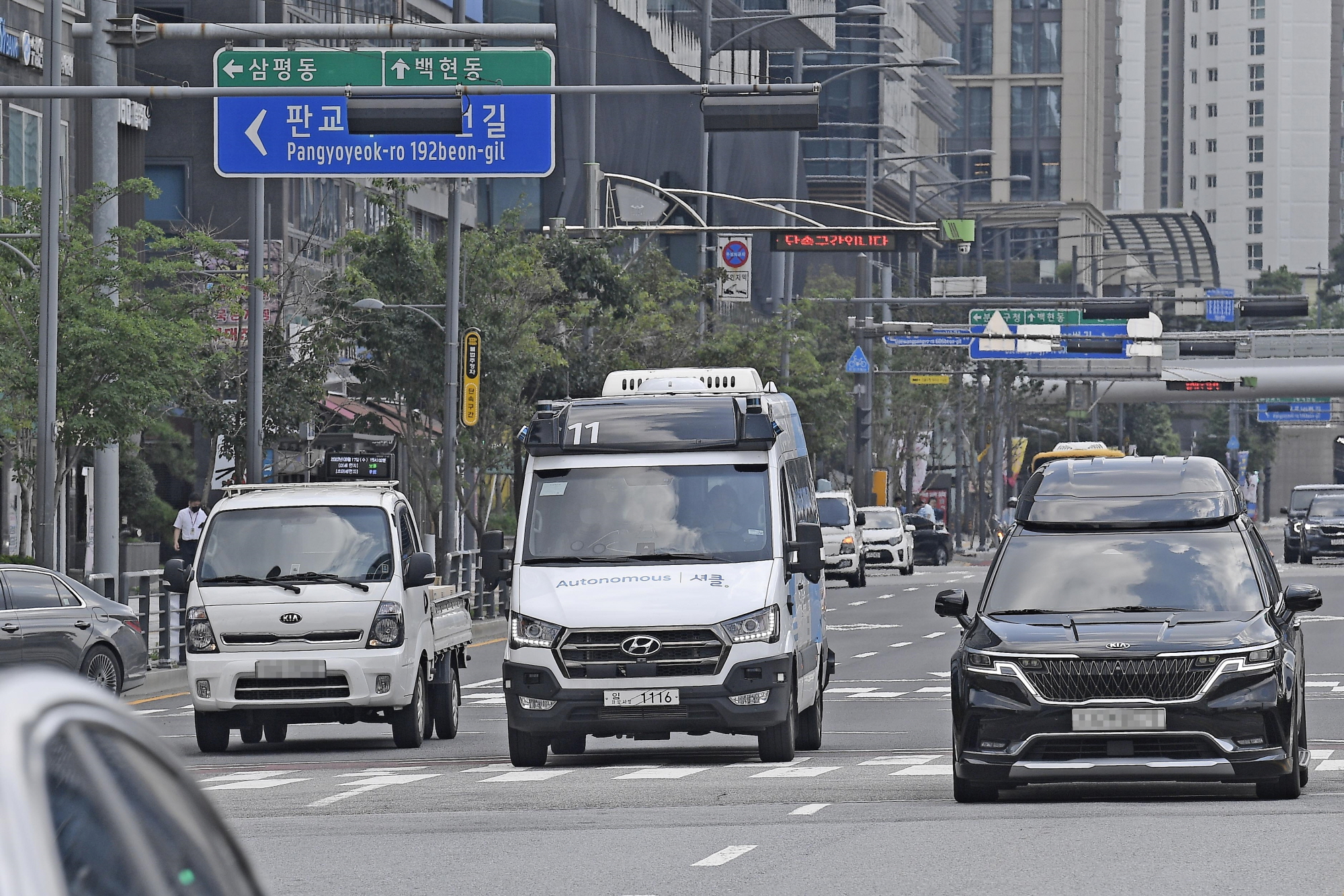
Hyundai Motor Company is introducing its Robo Shuttle service, which combines autonomous driving and artificial intelligence technologies, in Pangyo.
Starting from the 29th of this month, Hyundai will showcase a pilot service of the Robo Shuttle, which integrates autonomous driving and AI technology, in Pangyo, Gyeonggi Province.
The term Robo Shuttle is a blend of ‘robot’ and ‘shuttle’, referring to a multi-passenger mobility solution equipped with autonomous driving technology. This pilot service will utilize vehicles equipped with Level 4 autonomous driving technology.
Level 4 autonomous vehicles can comprehend and assess driving situations independently, allowing them to control the vehicle without the need for an emergency driver, except in certain limited situations.
Hyundai has modified two large passenger cars, Solati, for the Robo Shuttle pilot service and will incorporate an AI-based demand-responsive mobility service called ‘Shurcle’ into the offering.
Developed by the MCS (Mobility & Connected-car Service) Lab, the Shurcle service enables passengers to summon vehicles from nearby stops using an app. The AI algorithms generate the optimal route that the vehicle will follow to reach the pick-up location, aimed at reducing wait times and improving dispatch efficiency.
The Hyundai Robo Shuttle operates in an area with a radius of approximately 540 meters around Pangyo Techno 3 Intersection. By operating the Robo Shuttle in Pangyo Zero City, where it initially debuted in Sejong City last year, autonomous driving demonstrations are being conducted in a complex urban environment.
Pangyo Zero City is designated as a testbed for autonomous vehicles, attracting many tech companies and startups. To address the challenges of dense urban traffic, Hyundai has proactively collaborated with Gyeonggi Province and Seongnam City to build infrastructure that interlinks traffic signals with autonomous vehicles, gathering autonomous driving data.
Hyundai will operate the pilot service in a limited capacity for selected stakeholders and employees. Through this, they aim to collect feedback on the technology and services, which will inform enhancements before expanding the offering to general customers.
Jung Woong-jun, Executive Director of Hyundai’s Autonomous Driving Division, stated, “We are conducting demonstrations of various autonomous services including Robo Shuttle, Robo Ride, based on our self-developed autonomous technology. We will continue to develop technology to ensure that everyone can travel safely and conveniently in increasingly complex environments.”
Meanwhile, last June, Hyundai signed a MOU with Gyeonggi Province for the ‘Establishment of Eco-friendly Vehicle Infrastructure and Expansion of Future Mobility Implementation’, collaborating on building traffic signal infrastructure to respond to various traffic situations in urban areas. Hyundai had also provided the Robo Shuttle service through a testbed for autonomous driving established in the Sejong City area and at the Namyang Technology Research Institute.

Lee Sang-jin daedusj@autodiary.kr

